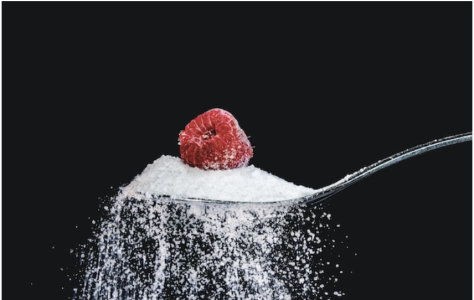Uncover the shocking major cause of obesity
By
Seia Ibanez
- Replies 0
We always look forward to some refreshing cold soft drinks or a slice of chocolate cake at the end of the day. But eating indulgent food regularly could negatively impact your health.
A new study offers insight as to why obesity is becoming a problem–and it all starts with a ‘trigger’ found in what we consume every day.
Fructose is present in common ingredients such as table sugar and corn syrup. It can also be found in everyday foods such as tomato sauce, soft drinks, fast food, fruit juice, and other sauces.
Researchers at the University of Colorado have theorised that fructose may lower and block the body’s adenosine triphosphate (ATP). This compound naturally provides energy for cells–but with a reduction of it, the body’s metabolism takes a hit.
Dr Richard Johnson, a researcher at the Anschutz Medical Campus in Colorado, explained, 'Fructose is what triggers our metabolism to go into low power mode’.
The study, which was published in the ‘Obesity’ journal, reported that sugar also ‘suppresses’ mitochondria that generate energy to power cells.
It also said, ‘Fructose is unique in resetting ATP levels to a lower level in the cell.’
In turn, cravings for less-than-healthy energy sources can emerge, such as unhealthy carbs and fatty foods, which are more easily stored as fat.
‘The low intracellular ATP levels result in carbohydrate-dependent hunger—or carb-craving— and metabolic effects that result in the increased intake of energy-dense fats,’ the study stated.
This could be prompting the body to crave more high-calorie, energy-dense food, and thus, lose control of appetite and be unable to burn off energy stored as fat.
Therefore, our bodies ‘lose [their] control of appetite, but fatty foods become the major source of calories that drive weight gain,' Dr Johnson noted.
The study also added: ‘Obesity is a disorder of energy metabolism, in which there is low usable energy (ATP) in the setting of elevated total energy.’ It also concluded that ‘excess energy drives weight gain.’
This idea is further supported by previous work carried out by the University of Colorado School of Medicine. It pointed to fructose as the sugar tied to unhealthy weight issues and highlighted that key characteristics of weight gain included 'hunger, thirst, foraging, weight gain, fat accumulation, insulin resistance, systemic inflammation and increased blood pressure'.
When Dr Johnson worked on these two research projects, he concluded that both research have a ‘full argument for how a particular carbohydrate, fructose, might have a central role in driving obesity and diabetes.’
Dr Johnson also found that sugar makes us sluggish and have hibernation-like behaviour, like that of bears and other animals.
‘We can trace it back to our ancestors, as well as learn from hibernating animals, exactly how fructose causes this ‘switch’ within us,’ he said.
If you’re struggling to lose some kilos but cannot let go of eating your favourite food, a new study revealed that you can enjoy eating pasta and still lose weight. Scientists concluded that eating a balanced diet, which includes eating spaghetti or penne, won’t necessarily lead to weight gain. Read more about this study here.

Members, if you are still struggling to lose weight, it could be a good idea to seek medical advice from your GP or nutritionist.
What are your thoughts about this study? Let us know in the comments below!
A new study offers insight as to why obesity is becoming a problem–and it all starts with a ‘trigger’ found in what we consume every day.
Fructose is present in common ingredients such as table sugar and corn syrup. It can also be found in everyday foods such as tomato sauce, soft drinks, fast food, fruit juice, and other sauces.
Researchers at the University of Colorado have theorised that fructose may lower and block the body’s adenosine triphosphate (ATP). This compound naturally provides energy for cells–but with a reduction of it, the body’s metabolism takes a hit.
Dr Richard Johnson, a researcher at the Anschutz Medical Campus in Colorado, explained, 'Fructose is what triggers our metabolism to go into low power mode’.
The study, which was published in the ‘Obesity’ journal, reported that sugar also ‘suppresses’ mitochondria that generate energy to power cells.
It also said, ‘Fructose is unique in resetting ATP levels to a lower level in the cell.’
In turn, cravings for less-than-healthy energy sources can emerge, such as unhealthy carbs and fatty foods, which are more easily stored as fat.
‘The low intracellular ATP levels result in carbohydrate-dependent hunger—or carb-craving— and metabolic effects that result in the increased intake of energy-dense fats,’ the study stated.
This could be prompting the body to crave more high-calorie, energy-dense food, and thus, lose control of appetite and be unable to burn off energy stored as fat.
Therefore, our bodies ‘lose [their] control of appetite, but fatty foods become the major source of calories that drive weight gain,' Dr Johnson noted.
The study also added: ‘Obesity is a disorder of energy metabolism, in which there is low usable energy (ATP) in the setting of elevated total energy.’ It also concluded that ‘excess energy drives weight gain.’
This idea is further supported by previous work carried out by the University of Colorado School of Medicine. It pointed to fructose as the sugar tied to unhealthy weight issues and highlighted that key characteristics of weight gain included 'hunger, thirst, foraging, weight gain, fat accumulation, insulin resistance, systemic inflammation and increased blood pressure'.
When Dr Johnson worked on these two research projects, he concluded that both research have a ‘full argument for how a particular carbohydrate, fructose, might have a central role in driving obesity and diabetes.’
Dr Johnson also found that sugar makes us sluggish and have hibernation-like behaviour, like that of bears and other animals.
‘We can trace it back to our ancestors, as well as learn from hibernating animals, exactly how fructose causes this ‘switch’ within us,’ he said.
If you’re struggling to lose some kilos but cannot let go of eating your favourite food, a new study revealed that you can enjoy eating pasta and still lose weight. Scientists concluded that eating a balanced diet, which includes eating spaghetti or penne, won’t necessarily lead to weight gain. Read more about this study here.
Key Takeaways
- A new study has identified fructose, a common ingredient in everyday foods, as a significant cause of obesity.
- Researchers at the University of Colorado suggest that fructose lowers and blocks the body’s adenosine triphosphate (ATP), a compound that provides energy for cells, leading to decreased metabolism.
- Fructose is also known for suppressing mitochondria, which generate energy to power cells, leading to increased cravings for unhealthy energy sources, resulting in weight gain.
- The research offers a 'full argument for how a particular carbohydrate, fructose, might have a central role in driving obesity and diabetes', according to Dr Richard Johnson, a researcher involved in the study.
Members, if you are still struggling to lose weight, it could be a good idea to seek medical advice from your GP or nutritionist.
What are your thoughts about this study? Let us know in the comments below!









